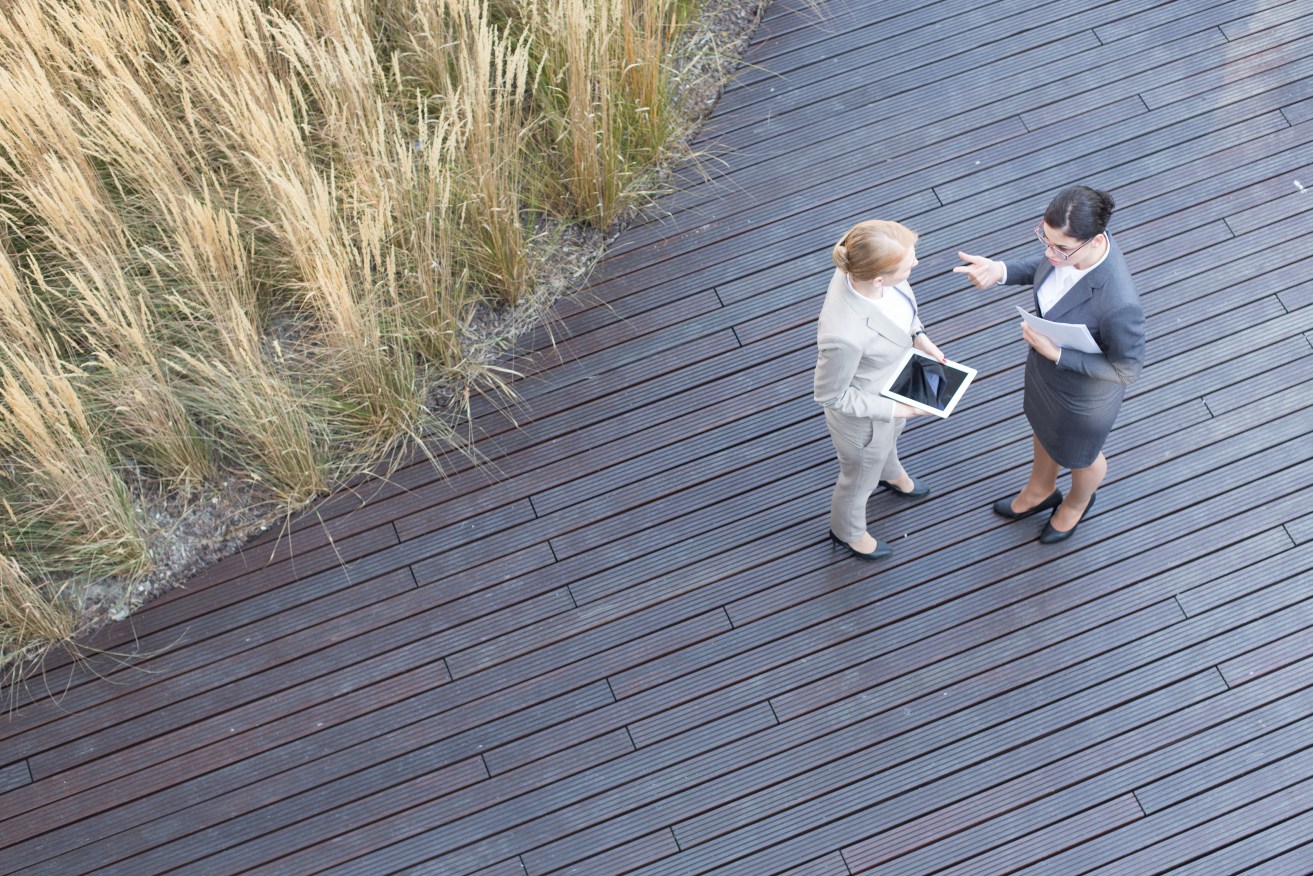Why SA business should boldly embrace gender diversity
Reducing gender pay gaps and getting more women into leadership roles will not only create a more equitable society, it will also be good for the South Australian economy, writes Glynn Phillips.

Women are hugely under-represented in many industries, such as engineering. Image: Moodboard
As South Australia looks to boost productivity in the decades ahead, we’d do well to examine population statistics to help us find our way. Australian Bureau of Statistics figures show an ageing population and a birth rate at less than replacement levels. Where will the future workforce come from to drive economic growth?
To answer this question we should start by looking at gender, and recognise that women are still a largely an untapped resource in business, rarely making it to the highest ranks of management – despite research showing that gender diversity leads to a better bottom line.
Currently, most companies are headed up by men and more men occupy roles where they are the key decision-makers. Only a little over 23 per cent of women sit on boards of ASX 200 companies in Australia. And, although we might read headlines saying it’s improving, the pace is slow.
With this week marking International Women’s Day (with the appropriate theme ‘Be Bold for Change’), I believe men need to stand alongside women to move the dial and champion more rapid change in South Australia.
We have so much to gain by empowering women employees. Gender diversity that extends to the highest levels of management leads to better profits and provides us with a greater depth of talent. A new study published last week by the BankWest Curtin University Economics Centre, Gender Equity Insights 2017, shows improving gender balance at senior levels also helps to reduce pay gaps.
Ideally, we should all be aiming for 50/50 representation, and particularly in roles that lead to leadership positions.
We should strive to reach these goals not just for better company profits, but, because creating an equitable workforce leads to a more equitable society for everyone.
Women traditionally dominate the lower paid industries like nursing and aged care, while men dominate better paid industries like construction, resources and technology. We need to change these kinds of common stereotypes: they’re holding us back.
As a leader in a technology-based business, I explain to my team members that it’s about output, not face hours.
At BAE Systems Australia this is a real focus for us. We know in coming years jobs in STEM (science, technology, engineering and maths) will increase dramatically. If they continue to be male-dominated, pay gaps and flow-on gender inequality in our community could get worse.
We need to address the situation now to attract and retain more women in the STEM workforce and to provide meaningful career paths.
Last year, the first report examining gender balance in STEM industries was released by Australia’s chief scientist, Dr Alan Finkel.
The news was alarming. Only one third of STEM-qualified Australians are women. Engineering is the worst profession, with the latest figures showing only 14 per cent of graduates are women.
It is the responsibility of everyone to change these statistics.
As Finkel noted in The Australian (January, 2017), we can’t continue to ignore 50 per cent of our population and we can’t continue to work alongside women of extraordinary talent and see them denied the chance to thrive in the workplace.
BAE Systems is a proud member of the South Australian Chiefs for Gender Equity group. We’re using our experience to try to help other businesses adopt initiatives that promote more gender diverse teams.
We want business leaders to know that reducing pay gaps and getting more women to the top table is a long-term objective, and I believe that it can be achieved.
We all know that to retain more women in the workforce and to help them achieve senior positions means providing the opportunity to balance work and home life.
So why don’t we provide that?
We might also need to help men access part-time hours so they can take on additional caring roles and support their partners. Let’s not make that difficult by clinging to old-fashioned notions of gender roles.
As employers, we need to make sure that being an active parent is not looked down upon in the workplace. We need to ensure there are flexible approaches to when and how work takes place.
As a leader in a technology-based business, I explain to my team members that it’s about output, not face hours.
Agile devices have freed us to work anywhere, anytime. How long you spend at the desk is no longer a measure of your productiveness, or your value to the business.
Regardless of your gender, if you work flexibly, it shouldn’t be a career killer. There’s no reason why someone working 15-hours a week can’t achieve a well-earned promotion to more senior levels if they’ve made a valuable contribution.
Men must stand up and start making these kinds of changes in their own businesses. And when they do, we’ll see more women staying in their jobs and achieving leadership goals. Benefits will follow.
It’s a great week for all of us to review what we’re doing in our own workplaces.
We can help women to achieve their full potential. And by doing so, we’ll generate greater productivity and help create a better society for all.
Glynn Phillips is the Chief Executive of BAE Systems Australia, headquartered in Adelaide. BAE Systems is Australia’s largest defence and security company and employs 3500 people across Australia.
He is a member of SA’s Equal Opportunity Commission’s Chiefs for Gender Equity group, representing the state’s leading businesses. On Thursday Glynn will be part of a small business forum to help local SMEs adopt more flexible work practices, to be held at the University of Adelaide. Call 8313 4467 for details.




